Photo
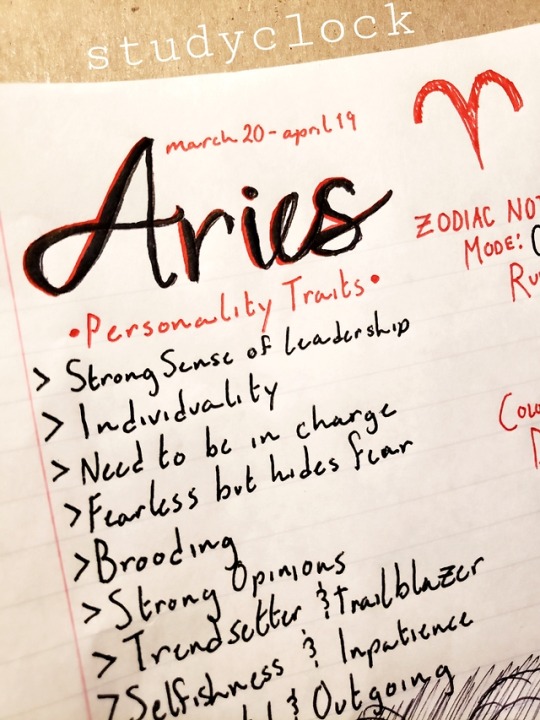
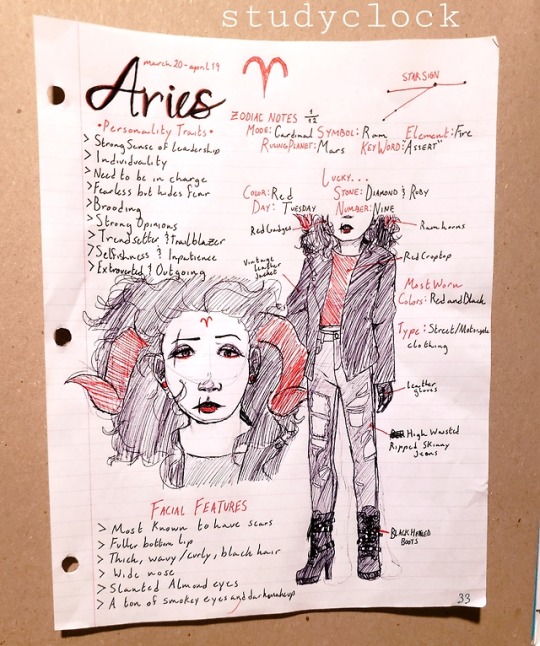
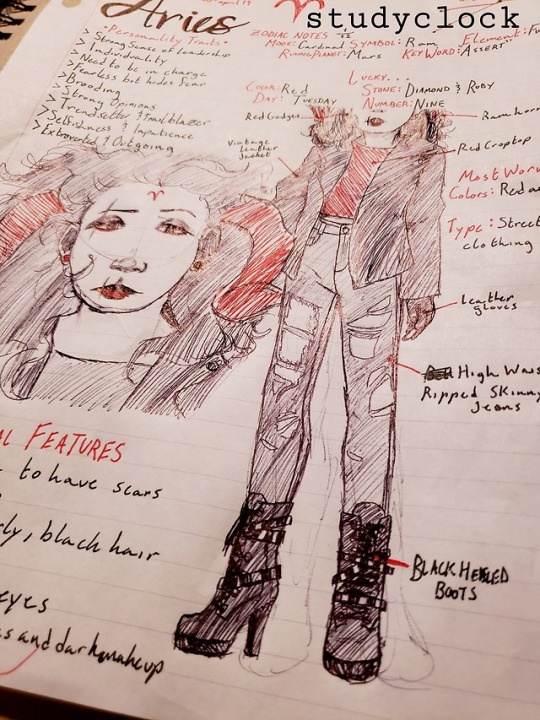
》PreAp Art Portfolio Project 1/12 》Zodiac Sign: Aries ((Notes to Draw a representation drawing)) 》My brother is an Aries and it is true for him for sure
0 notes
Photo

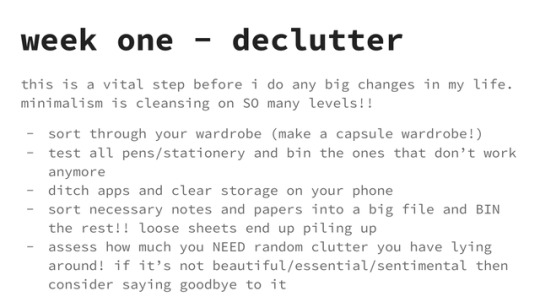




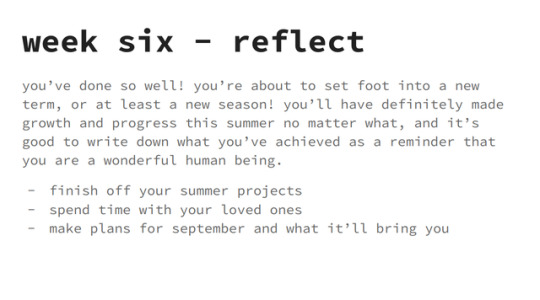

i made a 6 week summer plan!!
i’m going to following along roughly with this plan myself!! i’ve got big goals for self-improvement and detox this summer and i just want to start autumn afresh with big goals and hopes for the future!!
all my love ~
17K notes
·
View notes
Photo
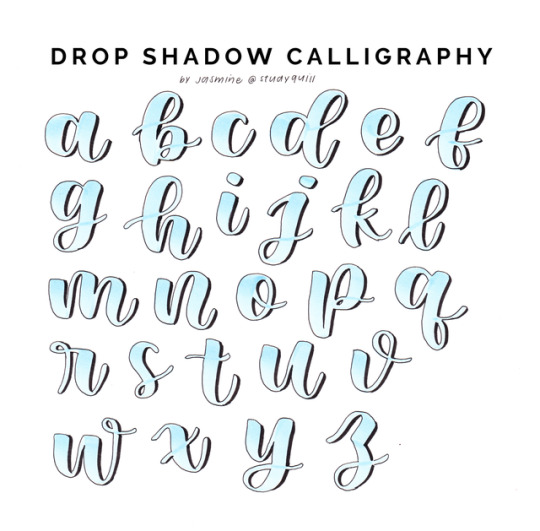
calligraphy drop shadow reference sheet, see the process for some of these letters in this video
3K notes
·
View notes
Photo
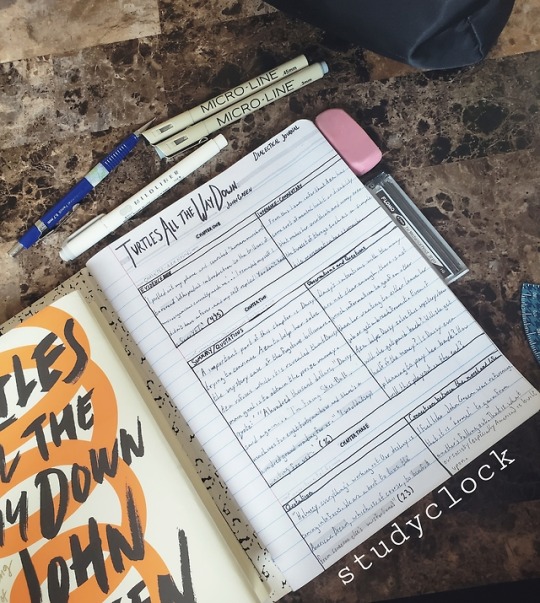
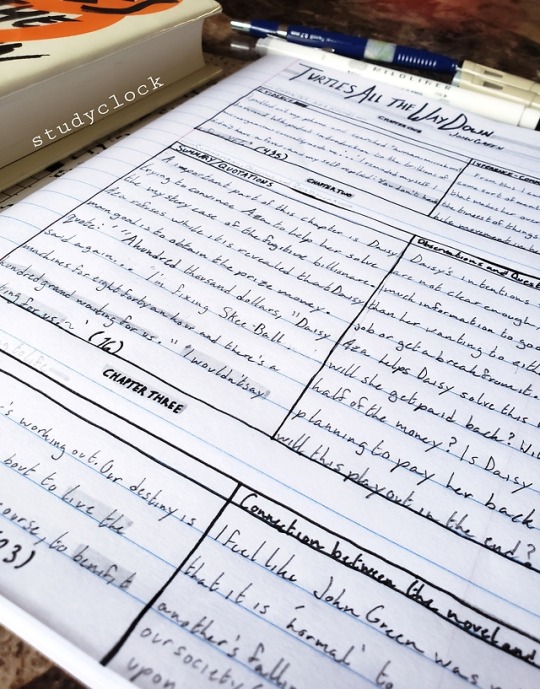
》PreAp English 3 Dialectical Journal Page 1 》Book: Turtles All the Way Down ((John Green))
8 notes
·
View notes
Text

Hi my name is Diana and this is my intro into the studyblr community. I'm a 16 year old highschool student, about to become a junior in August. I will have regular classes except for PreAp English and Art.
The reason for starting a studyblr is that during my sophomore year I slacked alot to the point where I was in danger of not passing any of my classes, but then I found out studyblr existed and it inspired me to push harder and give it my all, and I ended up passing for the year. That was too close of a call to give up though so I've decided as a tribute to myself and a responsibility I will maintain this account and receive the tips and inspiration the other studyblr's give me.
Obviously I started this at a really noncrucial time since it's the beginning of summer. But I'm still going to study and work hard over this break and get everything done in advance so I will be on top of the game next year.
For now though, I will be reposting things from the people that inspired me to work hard even if I didnt want to persay:
@studyquill @studyign and @eintsein
Thank you for posting such beautiful, educational and inspirational content, I would have never passed the year without you guys.
Well that's all for now, I'll see ya around, bye.

1 note
·
View note
Text
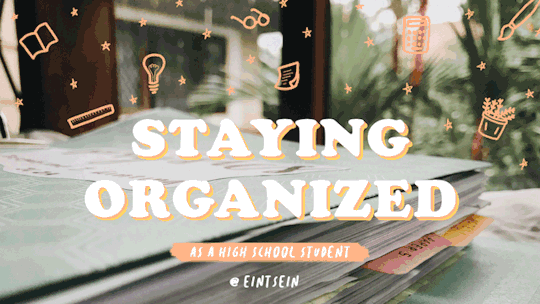
Hey guys, so I’m nearing the end of my senior year, and it’s been great so far! I accomplished my academic tasks efficiently and didn’t burn myself out, and I think the main contributor to my success as a student is my organization system. This system has been refined throughout my high school years, but I think now I’ve finally found the most effective methods.
Please remember that this isn’t the only organization system you can adopt; this is just the one that works the best for me, and I hope that by sharing it with you, you’ll gain a new perspective on how to stay organized as a high school student.

The first thing I wanna talk about is my notebook system, which I briefly mentioned in my Guide to Note-Taking.
My notebook system comprises three types of notebooks: the Everything Notebook, the subject notebook, and the revision notebook.
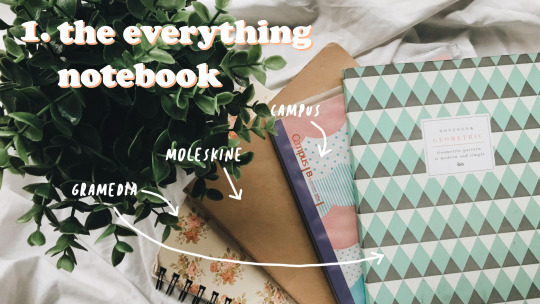
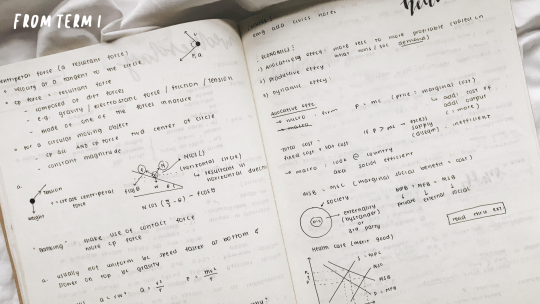
The Everything Notebook
The first stage is in-class notes. I only bring one notebook to school every day. I call it my Everything Notebook, and this is where I write down all of the notes I take in class. This way, I don’t have to lug around six notebooks where I’m only going to use a few pages in each of them that day.
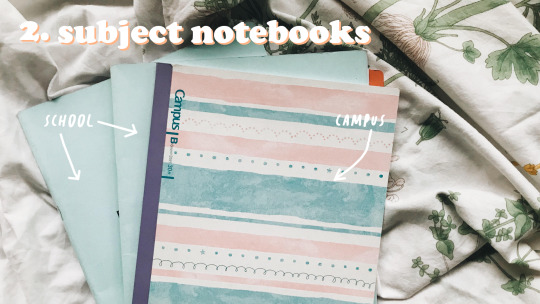
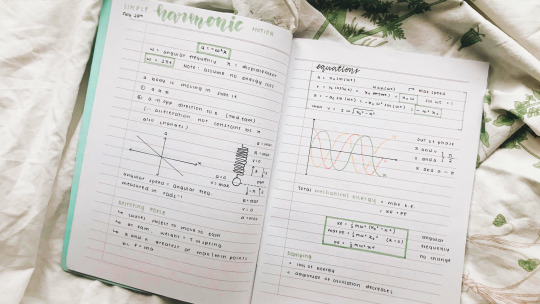
Subject Notebooks
At the end of the day, I would revise my notes and compare them to the syllabus so I know where we are in the learning process. I would then transfer my class notes from my Everything Notebook to my different subject notebooks. This is stage two. I also start to jazz up my notes because I use the notes in my subject notebooks to study for tests.
In addition to my class notes, I include material from my teachers’ notes that they might not have elaborated on, as well as points in the syllabus (I’m currently taking A2) that were only glazed over briefly, or not at all, in some cases. (Note: this does not mean they completely skip a chapter or topic; it’s more like they missed a few bullet points that should be in my notes but aren’t. An example would be if we’re learning about phenol reactions and the teacher forgot to mention the use of FeCl3 as a test for phenol.)
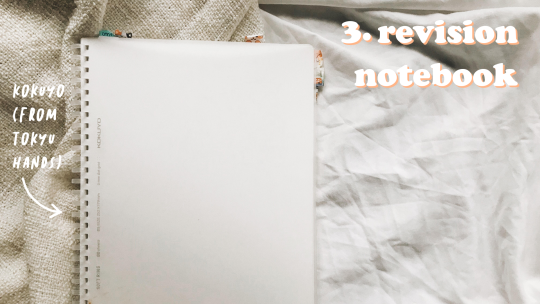
Revision Notebooks
Stage three comes a little later, when exam week is just around the corner. Essentially, I rewrite and improve my notes from my five different subject notebooks into a single revision notebook or binder. (Recently, I’ve opted for a revision notebook because they’re lighter and easier to carry around.)

Because my teachers don’t always teach in the order of the syllabus, the first thing I do is organize my notes according to the syllabus. I would then fill in any other missing gaps in the material that hadn’t been filled in stage two.
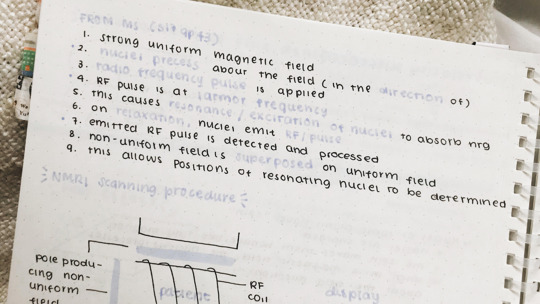
When compiling material for my revision notebook, I use as many sources as possible: my own notes, my teachers’ notes, youtube videos, online sites, and my favorite, the mark scheme! I add in some answers from past papers (explanations only, so no calculations) mainly to secure marks. It’s safer to memorize definitions straight from the mark scheme than from the textbook or from handouts. I also do this to ease my memorization, especially for topics that require lengthy explanations. It’s a lot easier to remember the 6 points I need to explain the principles of NMRI than to remember everything in the four-page handout my teacher gave me.

Folders and binders are essential to organizing your papers. Some people keep a single accordion folder for all their papers, but for me it’s just too heavy to carry around all the time. The same goes for subject folders that are brought to school every day.
Instead, my binder/folder system comprises my Everything Folder and my subject binders.
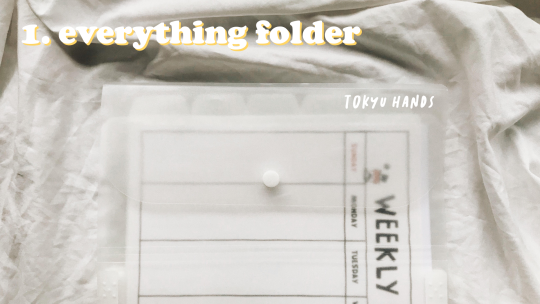
The Everything Folder
The folder I carry with me to school every day is this A4 folder I got from Tokyu Hands. It has 5 pockets, one for each day of the week, so all the papers I receive on Monday will go behind the first divider, and so on.
Some people also keep blank papers in their folders; I don’t because my school has its own lined paper and graphing pads that I keep under my desk that I use if a teacher asks us to do an assignment on those papers. If I do work at home, I prefer to just use a plain A4 paper or a legal pad.
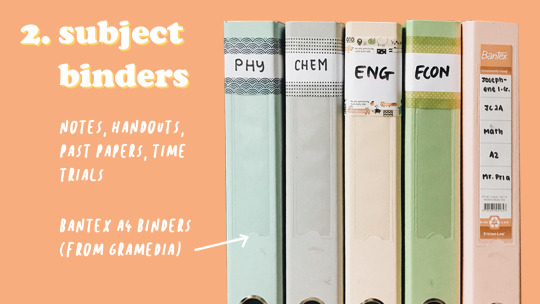
Subject Binders
At the end of the week, I’ll sort my papers into my subject binders. Sometimes I’ll keep some papers in the folder if I think I’ll be needing it the next week. This usually only applies to worksheets because all my teachers’ notes are available on Google Classroom, so I can access them even if I don’t physically have them.
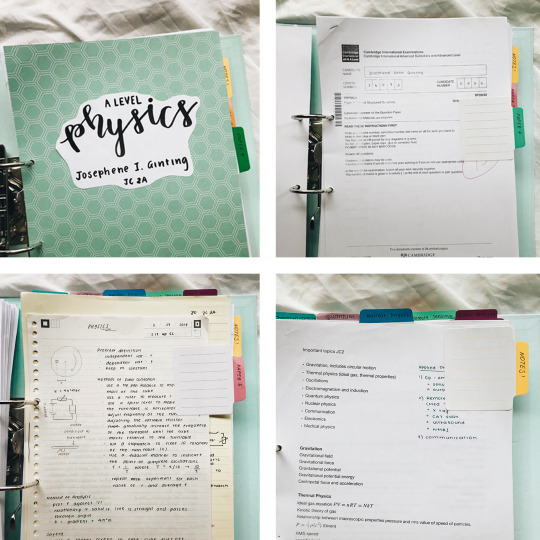
Each of these binders have sections inside them:
Physics: 1 for handouts, notes, and tests, 1 for Paper 4 (Theory), 1 for Paper 5 (Practical Planning). I included extra tabs to mark the different topics in the handouts section.
Chemistry: same as Physics.
Economics: 1 for Paper 3 (MCQ), 1 for Paper 4 (Case Study and Essay). A lot of my Economics material is online, though.
English: 1 for Paper 3 (Text and Discourse analysis), and 2 for Paper 4 (Language Topics, which includes 1 for Child Language Acquisition, 1 for World Englishes). Past papers, handouts, and notes all go under their respective topics.
Mathematics: I just keep everything together because I never revise math and just constantly do past papers.
This makes it easier for me to revise each subject because I can just take one binder with me instead of a messy folder with everything just shoved in there.

I keep a magazine file for each of my A-Level subjects (English and Mathematics are combined). All my textbooks, revision guides, and subject notebooks are kept here, so if I need to revise one subject, that’s the magazine file I’ll take out.
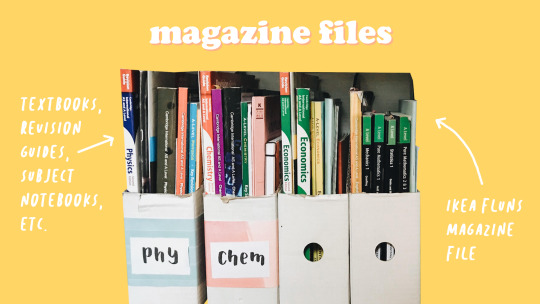
These magazine files prevent any small things (like my book of flashcards) from being shoved to the back of my bookshelf, or materials from different subjects from getting mixed up.

In my senior year, I mostly plan using this app called Edo Agenda. It syncs across all my devices for free and has all the features I need: a to do list to organize tasks, monthly and weekly calendars to organize events, a journal to organize notes and memos.
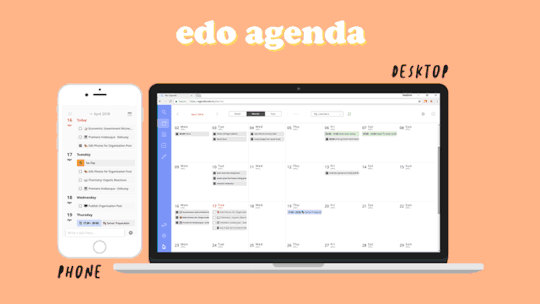
I used to bullet journal regularly, but it takes too much time during weekdays, so now I just bullet journal for the therapeutic effects it gives me, and I use an app for organizing tasks and events. Sometimes at the end of each week, I’ll transfer my tasks to my bullet journal and then decorate the page, but again, this is just for its therapy.

Organizing your school supplies is just as important as organizing your papers and notes. With a more organized backpack and pencil case, you won’t waste time looking for your things at the bottom of an abyss.
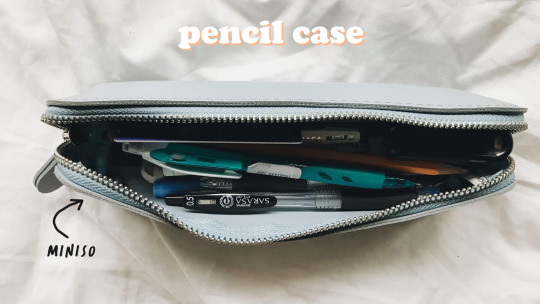
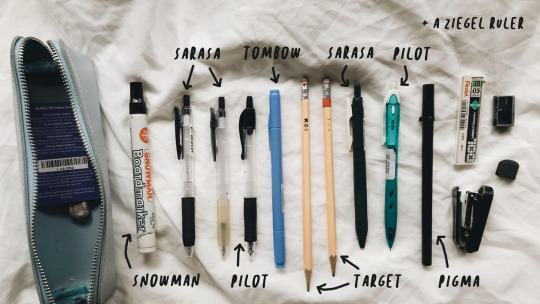
Pencil Case
I don’t find it necessary to bring so much stationery to school unless I plan on making notes at school (usually during revision week).
Backpack
Because we’re already in the revision term, I don’t really carry a lot of things in my everyday backpack, just the following:
Pencil case
Everything Notebook
Everything Folder
Revision notebook
Kindle
Phone
Wallet
Earphones
Calculator
Speaker
Drinking bottle
A pouch with things like a hairbrush, pads, and lip balm
And that’s all for now! I hope this post will help you organize your school life (if you haven’t already) or at least provide some useful insights on some ways to stay organized as a high school student.
45K notes
·
View notes
Text
Habits of successful students
Discipline: “discipline is doing what needs to be done, even when you don’t want to”, which means that you have to force yourself to start doing things.
Concentration: when you make a real effort in your work (study, homeworks etc…) you will be more likely to actually focus, understand and learn.
Organization: always set tasks and goals and organize a study-schedule. Maybe you don’t really want to plan all the week, but if you just wake up and open your agenda/bullet journal/iphone calendar and write down all the things you have to do, setting due dates and deadlines, you’ll feel more conscious and encouraged to stay on track.
Tasks-splitting: sometimes, you write down your tasks. Some of these tasks may be very hard and complicated, and it will take a long long time to complete them. So, you can split them in smaller tasks, so you will feel satisfied after a shorter period of time, instead of studying for hours and still seeing that chapter undone on your study-schedule.
Watch the sunrise: when I wake up late, I feel like I don’t have enought time to do my work and lose my motivation. I literally panic and then I think “whatever, I could not complete all the things anyway”. So, if you wake up earlier you will feel more positive and controlled.
Smart reading: try not to read your textbook just like a newspaper. For every paragraph you read, try to underline and write down key words and then your question about that subject. Literally, turn your textbook into questions. If you write down question - particularly why…? - and think about the answer, you will be more likely to remember that stuff later.
Healthy lifestile: if you don’t drink enough water in the morning, you will be more likely to have a decrease of concentration in the afternoon/evening, so: stay hydrated. Try also to have some snaks every one-two hours: feed your brain.
31K notes
·
View notes